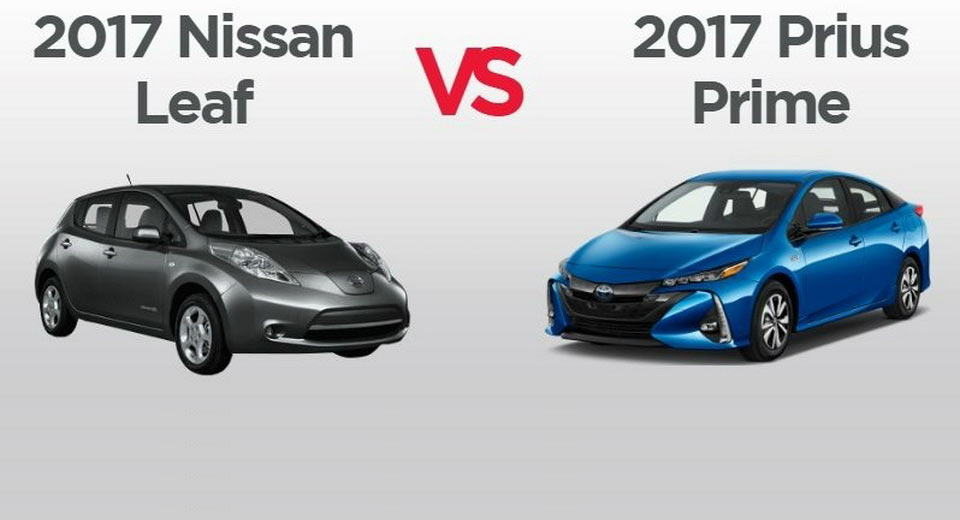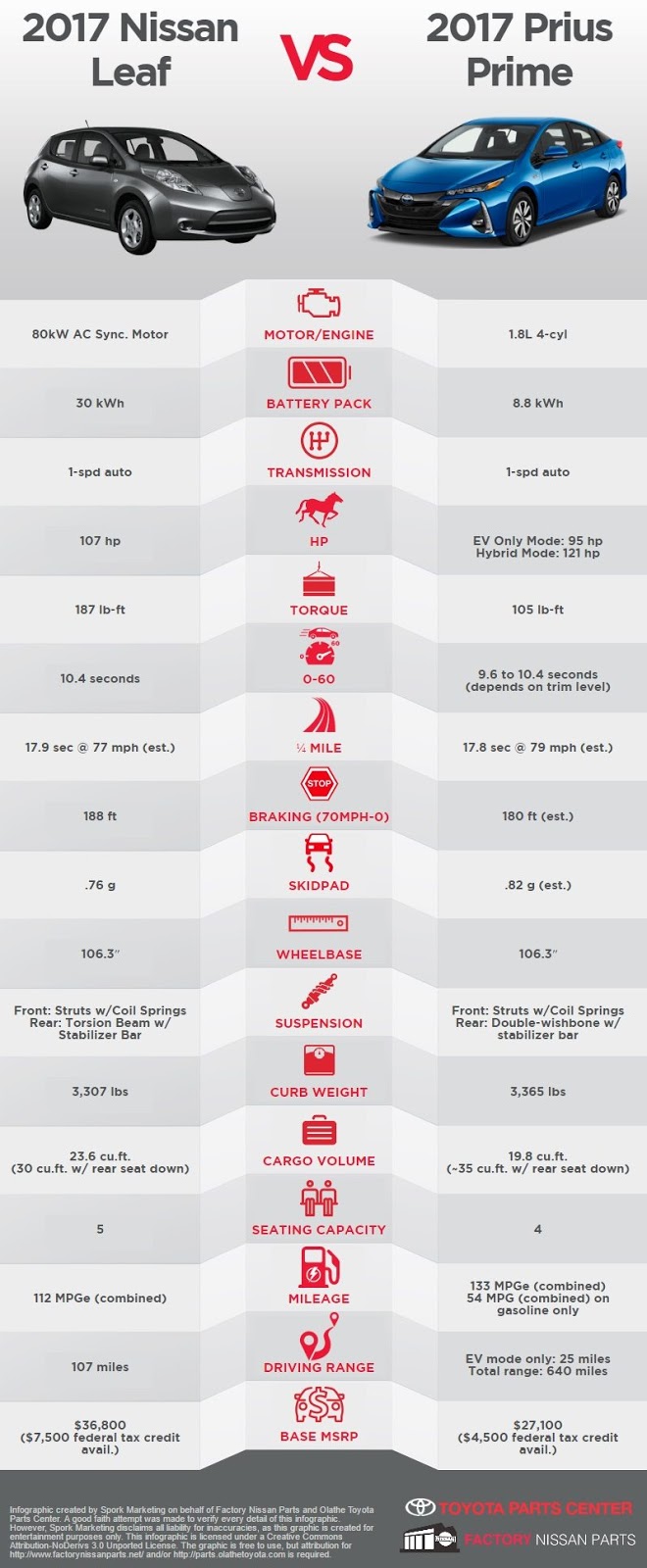If you’re torn between the Leaf and the Prius Prime, the first thing you need to ask yourself is if you prefer an all-electric model like the Nissan or a plug-in hybrid like the Toyota. Naturally, there are other things you need to take into consideration, such as interior space, performance, driving range and price difference.
This comparison was put together by Olathe Toyota Parts Center and Factory Nissan Parts, with both offering different perspectives on who should be considered the winner in this green comparison.
“Toyota’s plugin hybrid offers the best of everything: performance, range, efficiency and price,” argues Tom Blackman, director of Parts.OlatheToyota.com. “Unlike the last plugin Prius, the new Prime has a relatively big 8.8 kWh battery. This gives the new Prime 25 miles of EV range, which is plenty for most people’s commute.”
“Yet, because the battery is still relatively small, it can be charged without any special charging stations. Just plug it into the wall and it’s ready to go in the morning. Finally, if you need to go on a road trip, you can just take the Prime. It’s got 640 miles of driving range,” added Blackman, speaking in favor of the Toyota.
As you can see from the chart, the two models are very similar in weight, 0-60 times and 1/4 mile times. They also have identical wheelbase sizes, but that’s about where the similarities end and the differences begin to show. In fact, Scott Roberts, parts director for FactoryNissanParts, argues that it’s the Leaf who’s clearly the winner of this comparison.
“The Nissan Leaf’s 30kWh battery gives drivers 107 miles without gasoline. Comparing a Prius Prime to a Nissan Leaf is sort of like comparing a youth football team to an NFL team. The Leaf is a battery electric vehicle that’s in a class by itself. The Prius Prime’s 25 miles of battery range is a gimmick compared to the Nissan Leaf.”
While these are some bold claims, especially in terms of the metaphor used by Roberts, he does think that both Nissan and Toyota are moving in the right direction.
“Alternative-energy cars are here to stay. Hopefully, Toyota will follow in Nissan’s footsteps and produce a real battery electric vehicle someday.”




